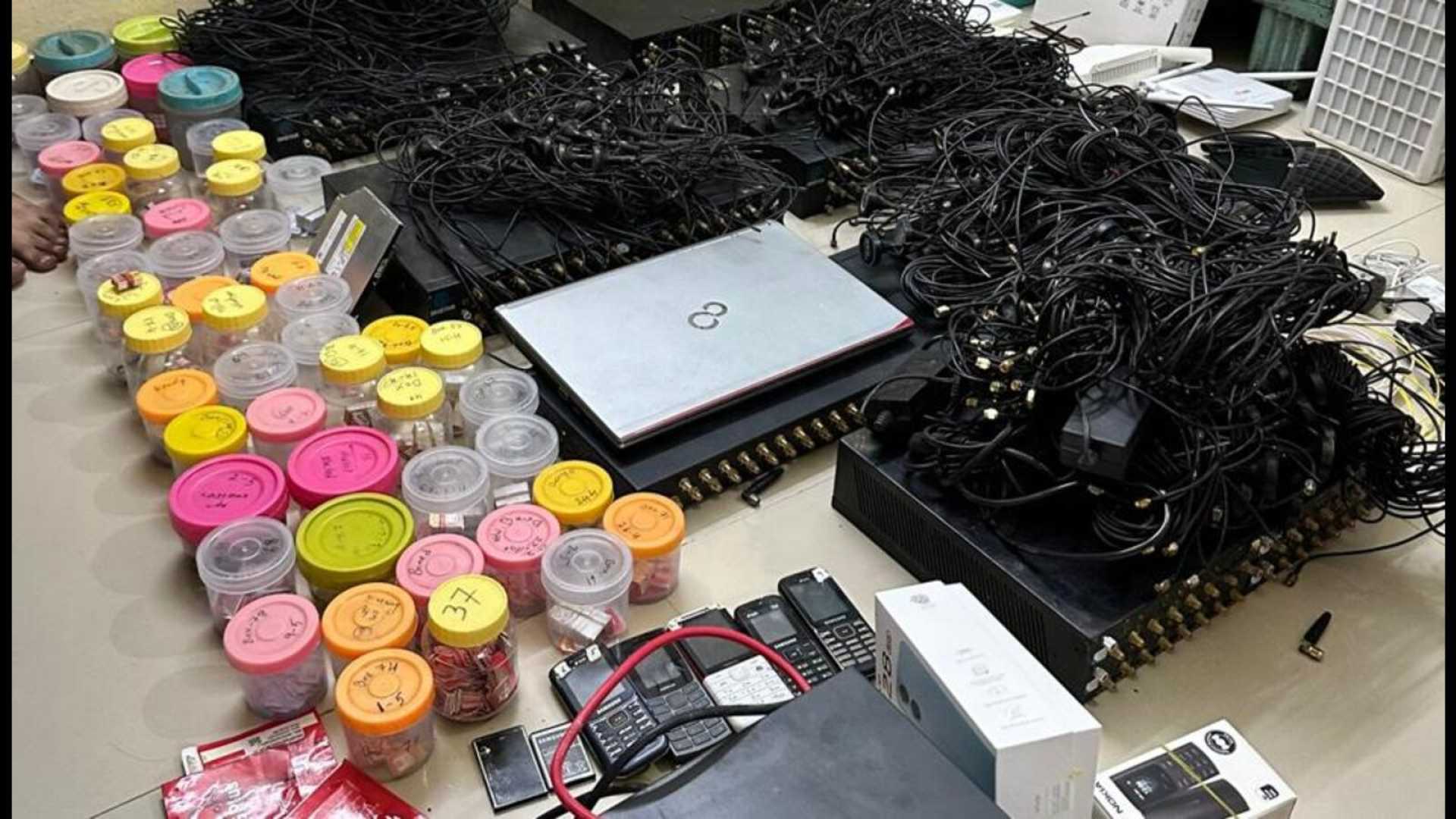News
Illegal Telephone Exchange in Pune Busted by ATS

An illegal telephone exchange in Pune‘s Kondhwa area has been dismantled by the state Anti-Terrorism Squad (ATS), with key operators reportedly sending their earnings abroad, according to sources. The primary operators are suspected to be stationed in Haryana‘s Nuh and other cities in northern India.
The operation was conducted on August 24-25, during which the authorities seized a substantial amount of equipment from a rented first-floor flat. Items confiscated included 3,788 SIM cards, nine Wi-Fi routers, SIM box antennas, laptops, and seven SIM boxes. Naushad Ahmed Siddiqui, aged 32, was arrested for allegedly managing the Pune facility. Subsequently, four additional individuals have been apprehended in connection with the case from various parts of Maharashtra and Rajasthan.
A senior ATS official revealed that the primary offenders utilized cryptocurrencies for international transactions, receiving them from foreign partners. Domestic payments to local operators, however, were conducted in Indian Rupees through bank transfers. The illegal exchange was designed to circumvent regular cellular networks in India by utilizing internet telephony, enabling communication without traditional or licensed phone networks.
Authorities indicated that individuals in Nuh, Bhiwandi in Thane, and other regions were operating similar networks, rerouting calls to India from foreign countries illicitly. A senior official explained that international calls, even those made through internet-based applications to Indian phone users from abroad, are chargeable by the Government of India. “Illegal telecom exchanges are employed to dodge these charges, consequently leading to a financial loss for the exchequer,” the official stated. Several nations have prohibited online applications that facilitate off-network communications with individuals in other countries.
When a call is made to India using such applications from a nation where internet calls are banned, it is initially routed via an illegal exchange in that country before reaching one in India. The call bypasses the local mobile network, directly received by the SIM box, as described by the ATS officer.
Investigations disclosed that the operators of foreign illegal phone exchanges collected fees from regular service users, with ensuing payments to their Indian counterparts. Due to government scrutiny of legitimate bank transactions, cryptocurrencies were used for these payments. Indian operators reportedly transferred their cryptocurrency earnings overseas in a similar manner.
The investigating team is currently scrutinizing bank accounts of some operators to ascertain the volume of cryptocurrency received and disbursed by the network.












